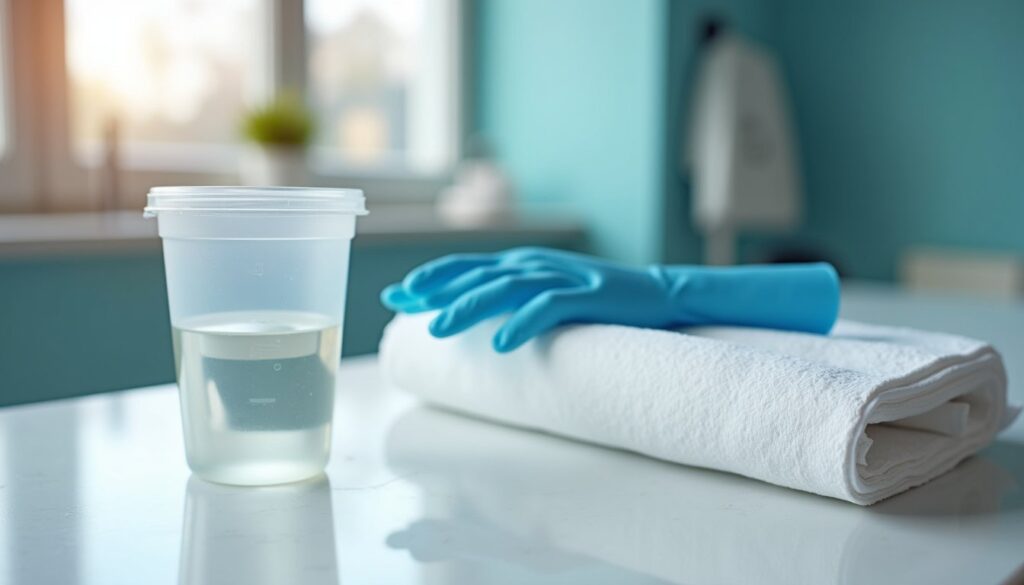There are various names for illegal alcohol, such as white lightning, moonshine, hooch, rotgut, and mountain dew. These names add to its secretive and fascinating image, making some people believe it’s a strong and enjoyable drink.
However, it’s crucial to understand that moonshine isn’t safe to drink as it can have extremely harmful effects. Making moonshine, also known as “bootlegging,” significantly raises the risk of harm due to the absence of regulations. This lack of oversight leads to serious safety concerns and health risks.
What is Moonshine?
Moonshine is a type of alcohol that is made illegally using a process called distillation. It is usually unaged whiskey and is well-known for having excessive alcohol content. Unlike commercially produced liquors, it isn’t always subject to laws or regulations; it can have a much higher alcohol content.
To make moonshine, the following items are mixed: white corn, sugar, and yeast. These items are fermented, a process that converts sugar into alcohol. The next step is called distillation.
The distillation process separates alcohol from the fermented mixture. This results in a liquor with a high alcohol concentration.
The Origins of Moonshine
Moonshine became widely known during the Prohibition era in the US, which lasted from 1920 to 1933. During this time, the manufacturing, sale, and distribution of alcoholic beverages were prohibited.
The term “moonshine” is used to describe illegally produced alcohol. It was made secretly at night, often using the moonlight to avoid detection by law enforcement.
However, the records of moonshine extend beyond prohibition times. The origins of this can be traced back to many different places. These include Appalachia in the United States, the Scottish Highlands, and the Balkans. In these regions, moonshine was frequently made to preserve surplus agricultural produce.
Today, moonshine production and consumption are mainly found in rural populations in states like Alabama, South Carolina, Georgia, and Mississippi. Most cases related to moonshine involve older males living in rural settings in West Alabama.
Although, moonshine consumption is not contained in the Southeast or rural populations alone. There were occasional reports of moonshine use in urban areas like Washington, DC, Michigan, Pennsylvania, and Virginia.

Is Moonshine Dangerous?
Moonshine is a hazardous substance because it lacks proper quality control during distillation. Distilling liquor is a scientific process that demands precision and expertise.
Moonshine is not commercially produced. It is usually made in unregulated settings. The equipment and methods used to make moonshine are not tested or approved.
To illustrate the risks involved, consider the distillation temperature. It is crucial to heat the alcohol to about 173.1 degrees Fahrenheit for safe production. Even a moderate deviation from this temperature can lead to the formation of harmful chemicals like formic acid and methanol.
Methanol is a toxic substance in paint thinners, antifreeze, mouthwash, and embalming fluids. These chemical compounds may have severe health consequences when consumed.
It is essential to recognize that moonshine production lacks quality control. This dramatically increases the potential for hazardous outcomes. Therefore, consuming moonshine is a risky and unsafe choice.
The Dangers of Moonshine
Drinking moonshine carries numerous health risks due to its unregulated production methods. The lack of regulations allows for potential tampering with the alcohol, increasing the chances of contamination and using unsafe ingredients.
Moonshiners often employ materials and substances that can introduce harmful toxins into the final product. These contaminants may include hazardous substances like lead, copper, and others, which can seep into the liquor during the distillation process.
Methanol, also called wood alcohol, is a dangerous component found in moonshine. It is highly poisonous and can cause harm to one’s health. The absence of control in moonshine production can produce high levels of methanol as a byproduct.
Consumption of this toxic alcoholic drink can cause severe harm to the central nervous system or even death. Regulated liquors undergo rigorous testing to make sure that methanol remains at safe levels, whereas homemade moonshine lacks those safeguards.
Another danger associated with moonshine use is its inconsistent alcohol content. There are no standardized procedures for determining the strength of alcohol. This makes it difficult, as the quantity of alcohol by volume can vary significantly.
Consuming moonshine can lead to a person drinking more alcohol than intended. This can increase the risk of alcohol poisoning and alcohol-related accidents.
Furthermore, moonshine is typically characterized by a high alcohol content, making it highly flammable. Mishandling moonshine can result in accidental fires, posing significant risks to producers and consumers.
Side Effects of Moonshine
Due to its unusually high alcohol content, consuming moonshine can result in severely intensified side effects. Some side effects of drinking moonshine include:
- Confusion and feeling disoriented
- Vomiting and nausea
- Slow or difficulty in breathing
- Irregular heartbeat
- Skin appearing pale or blue-colored
- Seizures
- Loss of consciousness
- Symptoms of alcohol poisoning
It is important to note that these side effects can be hazardous and potentially life-threatening. Moonshine has a high potency. This increases the risks associated with alcohol consumption.

Consuming moonshine over the long term can greatly affect the liver due to its high alcohol content. The Centers for Disease Control and Prevention (CDC) warns that regular moonshine consumption can result in alcoholic liver disorder.
The condition progresses slowly and can lead to the following:
- The accumulation of fat in the liver, known as fatty liver
- This can progress to alcoholic liver disease
- Alcohol use can cause cirrhosis of the liver, a condition where the liver develops scars and loses its ability to function
It is crucial to understand that chronic consumption of moonshine or any excessive alcohol consumption can significantly increase the risk of liver damage. Seeking help and making healthier choices are essential to protect the liver and overall well-being.
Will Moonshine Blind You?
Improperly distilled moonshine can contain dangerous levels of methanol, which can cause permanent damage to the optic nerve. Methanol poisoning can result in a condition that damages the optic nerve, leading to partial or complete blindness.
Even a small amount of methanol can have severe effects:
- Consuming just 10 milliliters (slightly less than standard glass) of methanol is enough to cause blindness
- Drinking over 30 milliliters (about two shot glasses) can be fatal
It is essential to be aware of the dangers associated with using methanol. Moonshine, mainly produced in unregulated settings, carries a high risk of developing dangerous levels of this toxic substance. Taking precautions and avoiding improperly made alcohol is vital for protecting one’s health and vision.
Alcohol Addiction Treatment at Northridge Addiction Treatment Center
If you or someone you know is battling alcohol use use disorder, it is crucial to seek help. At Northridge Addiction Treatment Center, we provide evidence-based care that prioritizes your needs. NATC equips you with the essential abilities and strategies to manage a life free of substance abuse.
At NATC, our commitment is to transform the lives of those affected by alcoholism through effective treatments and therapies. Aiming to address the root causes of substance use disorders and any related mental health conditions, NATC is devoted to your recovery.
Take the first step towards a happy and healthy life rooted in recovery today. Our caring treatment specialists are eager to assist you. Don’t hesitate to reach out to us for support. Contact us today to begin your recovery journey.











